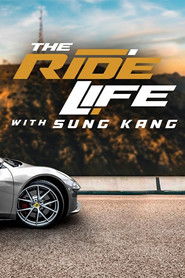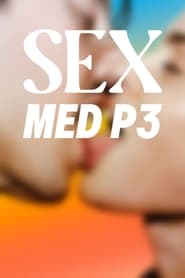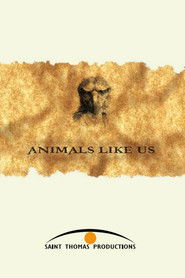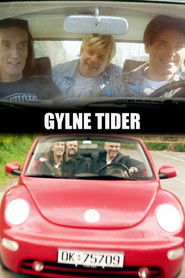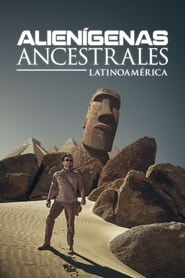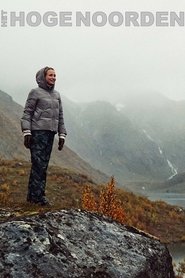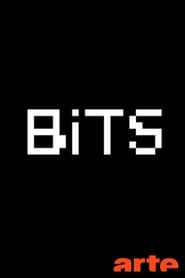Popular Documentary TV Series on Tub Tv - Page 442
-
The Ride Life With Sung Kang
2023
Join Sung Kang on a modern-day adventure to explore unique car cultures and the evolving relationship between man and machine. -
EVERGLOW: EPICK LOG
2019
-
The Prison Confessions of Gypsy Rose Blanchard
2024
star 7.1Currently still incarcerated, Gypsy's shocking story has been told by many others but now, as she approaches her release in December, she is finally ready to tell her truth before she becomes a free woman for the first time in her life. -
The Gene Code
2011
The Gene Code
2011
star 10Dr Adam Rutherford explores the consequences of one of the biggest scientific projects of all time - the decoding of the entire human genome. -
Yui Yokoyama (AKB48) Gracefully Travels: The Beautiful Melodies of Kyoto
0000
Exploring Kyoto’s traditional culture, art, cuisine, and history through the many "sounds" that fill the city. This new and unique program focuses on the various "sounds" resonating throughout Kyoto, allowing viewers to experience the elegance of the ancient capital’s traditions in a relaxed manner. From the rhythmic clatter of weaving looms to the chanting of sutras in historic temples, and the enchanting tones of the shamisen echoing through the hanamachi (geisha district), the program showcases the many "sounds" of Kyoto. Hosted by Yui Yokoyama (AKB48), a Kyoto native, the journey delves into the city’s rich culture, performing arts, and history. -
Sex with P3
2022
-
Animals Like Us
0000
Animals Like Us
0000
star 10This 11 episode series questions the separation that our cultures or religions have tried to establish between human beings and animals. -
江苏省城市足球联赛
2025
江苏省城市足球联赛
2025
-
Hunting History with Steven Rinella
2025
star 7Join world-renowned outdoorsman and author Steven Rinella as he dives into history’s greatest and most perplexing wilderness mysteries. With his deep knowledge of the wild, survival expertise, and unyielding curiosity and grit, Steve is uniquely positioned to look at these mysteries through a totally new lens, examining how people’s interactions with their environment may rewrite the narrative on some of our most iconic legends. -
Britain's Whales and Sharks
2016
Over two programmes, Britain’s Whales and Britain’s Sharks, Ben Fogle and Ellie Harrison go in search of Britain’s sharks and whales. Using the biggest bait on Earth they witness the greatest gathering of sharks ever seen in UK waters and come face to face with a pod of giant Humpbacks. Viewers will get to witness the first ever study of a whale fall event in the UK. Supported by leading experts, both programmes promise to present an unrivalled opportunity for viewers to gain a close insight into marine life around the British Isles. -
Gylne tider
2002
Gylne tider
2002
star 6.5Gylne tider is a Norwegian television series that currently airs on TV2. The show has produced four seasons which premiered in 2002, 2004, 2006 and 2010. Presenter Øyvind Mund, cameraman Steinar Marthinsen and sound engineer Ingar Thorsen travel to meet their childhood heroes. -
The Far North
2023
The Far North
2023
-
Great Castles of Europe
0000
Documentary series recounting the histories of various European castles and their owners. Season 1 was an early widescreen program, formatted in 14:9, but season 2 was in standard 4:3 fullscreen. -
The Death Coast
2025
The Death Coast
2025
star 8The Death Coast is an area of rough sea in the North Atlantic that's claimed more than six thousand vessels across centuries. Many sailors braved these waters – some for trade, some for war, and some for plunder. Gold and priceless objects from their wrecked ships now lie scattered across the ocean floor but salvaging has been banned here for the last decade. Now, after a long battle, shipwreck hunter Jeff Mackinnon has won exclusive rights to dive. He and his team have just 12 weeks to search the wrecks before the turbulent waters of the Death Coast make diving impossible. -
Sailor
1976
Sailor
1976
A major BBC television documentary series, first shown in 1976. About the life on board the fourth HMS Ark Royal, a British aircraft carrier. It followed the ship on a five and a half month deployment to North America in 1976 & the follow up years later to find out about some of the characters. -
Ocean Warrior
2022
 Netflix
Netflix
 Amazon Prime Video
Amazon Prime Video
 Apple iTunes
Apple iTunes
 Apple TV Plus
Apple TV Plus
 Disney Plus
Disney Plus
 Google Play Movies
Google Play Movies
 Paramount Plus
Paramount Plus
 Hulu
Hulu
 HBO Max
HBO Max
 YouTube
YouTube
 fuboTV
fuboTV
 Peacock
Peacock
 Peacock Premium
Peacock Premium
 Amazon Video
Amazon Video
 The Roku Channel
The Roku Channel
 AMC+
AMC+
 Kocowa
Kocowa
 Hoopla
Hoopla
 The CW
The CW
 Vudu
Vudu
 Starz
Starz
 Showtime
Showtime
 PBS
PBS
 Pantaflix
Pantaflix
 FXNow
FXNow
 Tubi TV
Tubi TV
 Kanopy
Kanopy
 Comedy Central
Comedy Central
 Crunchyroll
Crunchyroll
 Microsoft Store
Microsoft Store
 Redbox
Redbox
 Sun Nxt
Sun Nxt
 ABC
ABC
 DIRECTV
DIRECTV
 Crackle
Crackle
 Fandor
Fandor
 Plex
Plex
